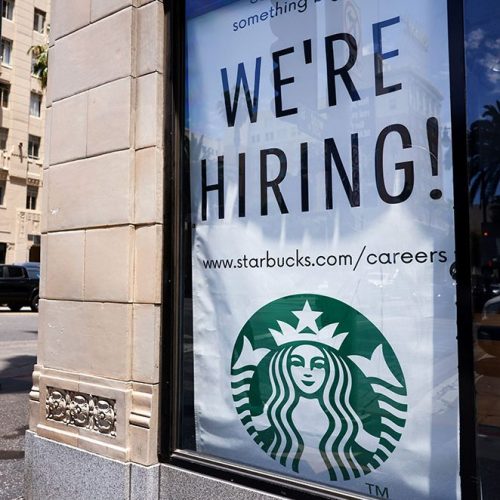Introduction
You may have heard there’s a labor shortage. The Wall Street Journal says so. So does the U.S Chamber of Commerce and many corporate CEOs.
Others say the labor shortage is mostly a myth, that businesses could easily find more workers if they just offered them more money. After all, that’s the law of supply and demand.
Preliminary data suggests that employers are starting to raise pay again, luring hesitant workers back after more than a year of COVID-19 lockdowns.
Wages rose across all racial groups in the first three months of 2021 — the first time that happened since the pandemic began to shut down the U.S. economy, according to the latest data from the Bureau of Labor Statistics. The typical full-time worker got a $32 weekly raise during that time, outpacing inflation.
But if you look closely at the numbers, a familiar theme emerges. The recovery is not the same for everyone. A Center for Public Integrity analysis of the data shows that white women and Asian men saw the largest gains in weekly pay — $39 and $48, respectively.
Meanwhile, Black men and Latinas got less than half as much. The $11 pay increase for the typical Black man was the smallest among all groups. The typical Latina received an $18 weekly raise.
These pay gaps, which come on top of longstanding income inequality, are the latest example of the pandemic’s uneven economic impact. Black and Latino employees, many of whom work in the service industry, lost their jobs at a higher rate than everyone else. They were also less likely to qualify for unemployment aid because many live in states that have made it harder to access the benefit.
“The [labor] market won’t correct 100 years of racial and gender inequality that have been baked into the system,” said Randy Albelda, an economics professor at the University of Massachusetts Boston.
Albelda said lawmakers need to craft policies to reverse decades of income inequality, particularly by investing in child and elderly care services. She pointed to the Better Care Better Jobs Act, introduced in the House in June, which would raise wages and expand benefits for home care workers, who are predominantly immigrants and women of color. She also cited the Family Act, a bill that would subsidize paid leave for working families after the birth of a child or to care for a sick relative.
Neither bill has made it to a full vote in the Senate or the House.
“We entered the pandemic with enormous amounts of inequality among women, and the recession just made it worse,” Albelda said. “The market won’t correct itself.”
Read more in Inside Public Integrity
Watchdog newsletter
The Supreme Court’s subtle hint on police accountability
Recent rulings suggest the high court may be open to ‘recalibrating’ qualified immunity.



Join the conversation
Show Comments